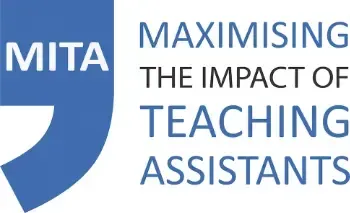Teaching on the cheap?: TAs covering classes
This project detailed the extent and impact of schools’ deployment of TAs to cover classes in place of teachers, in the context of an on-going challenge of teacher shortage and supply in England and Wales. The results, based on a survey of ~6,000 TA, shows how TAs are plugging gaps in the teacher workforce at the cost of creating gaps in provision for pupils with SEND, and to teaching assistants’ personal and professional detriment.
Maximising the Impact of Teaching Assistants (MITA) evaluation
An independent evaluation involving 128 primary schools, commissioned by the Education Endowment Foundation, has found positive effects of undertaking the MITA programme. Compared with a control group, schools that participated in MITA improved how TAs were deployed and prepared for their classroom roles, and this led to a positive impact on pupil engagement and independence.
The 'unsung heroes' of the pandemic
During the Winter 2021 lockdown period, Rob Webster (from the MITA team) worked with colleagues at the UCL IOE International Literacy Centre – Gemma Moss, Alice Bradbury and Sinead Harmey – to conduct a large-scale, national survey of TAs working in UK schools. The findings tell a compelling story about how vital TAs have been to keeping schools open during lockdowns, and keeping children learning.
The Effective Deployment of Teaching Assistants (EDTA) project
The findings from the DISS project made it clear that schools needed to fundamentally rethink the way they used TAs if they are to get better value from them – and help pupils. To address the practical issues raised, researchers from the DISS team (Rob Webster, Tony Russell and Peter Blatchford) worked in collaboration with teachers and TAs from ten schools over a school year to develop and evaluate alternate models of TA use. The results were published in 2012.
The developmental work that led to MITA emerged from the EDTA project. This collaborative small-scale project involved pairs of teachers and TAs thinking through and trialling alternative ways of using TAs, in order to mitigate the challenges and problems raised via the DISS project.
The Deployment and Impact of Support Staff (DISS) project
The DISS project was the catalyst for MITA. Named by the British Educational Research Association as one of 40 landmark studies to have had a significant impact on education in last 40 years, the DISS project is the largest study of teaching assistants and other school support staff carried out in the world. The results, published in 2009 and widely reported in the media, found that the more support pupils received, from TAs, the less progress they made – especially those with special educational needs.
Crucially, these results were not attributable to either pupil characteristics (i.e. prior attainment or SEN status) or anything TAs were doing. Instead, it was the way schools and teachers deployed and prepared TAs – factors that are out of TAs’ control – that best explained the surprising results.
The DISS project findings led to the creation of a framework to explain the DISS project findings, and rethinking how TAs can be better deployed and prepared, and trained to interact with pupils to scaffolding learning.
Subsequent studies by Rob Webster and Peter Blatchford – the MAST and SENSE studies, conducted between 2011-2017 – on the everyday educational experiences of pupils with high-level SEN in primary and secondary schools cast further doubt on the sustainability of a model of inclusion that is almost fully dependent on the use of TAs.
Key Publications and Articles
- Webster, R., Bosanquet, P., Franklin, S. & Parker, M. (2021) Maximising the Impact of Teaching Assistants in Primary Schools: A Practical Guide for School Leaders, Oxon: Routledge
- Bosanquet, P., Radford, J. & Webster, R. (2021) The Teaching Assistant's Guide to Effective Interaction: How to maximise your practice. 2nd edition, Oxon: Routledge
- Webster, R., Russell, A. & Blatchford, P. (2016) Maximising the impact of teaching assistants: Guidance for school leaders and teachers. 2nd edition, Oxon: Routledge
- Blatchford, P., Webster, R. & Russell, A. (2012) Challenging the role and deployment of teaching assistants in mainstream schools: The impact on schools. Final report on findings from the Effective Deployment of Teaching Assistants (EDTA) project
- Blatchford, P., Russell, A. & Webster, R. (2012) Reassessing the impact of teaching assistants: How research challenges practice and policy, Oxon: Routledge
- Blatchford, P., Bassett, P., Brown, P., Martin, C., Russell, A. & Webster, R. (2009) The Deployment and Impact of Support Staff in Schools. Research Brief. London: DCSF
- Blatchford, P., Bassett, P., Brown, P., Koutsoubou, M., Martin, C., Russell, A., Webster, R. & Rubie-Davies, C. (2009) The Deployment and Impact of Support Staff in Schools. Final report. London: DCSF
- Blatchford, P., Bassett, P., Brown, P., Koutsoubou, M., Martin, C., Russell, A. & Webster, R. (2009) The Deployment and Impact of Support Staff in Schools. Characteristics, working conditions and job satisfaction. Final report. London: DCSF

